
 Flash News
Flash News
Fire breaks out in a building in Astir
KAS rejected the request for a recount of votes, Alimehmeti sues the CEC in the Electoral College
Mahmut Orhan brings a unique experience with Curious X
Six police officers are sent to court, they did not impose fines even though they saw violations
Murder of Martin Cani/ 5 minors called to testify in Court, perpetrator denies charges
Unblocking the political crisis, awaiting the decision of the Constitutional Court
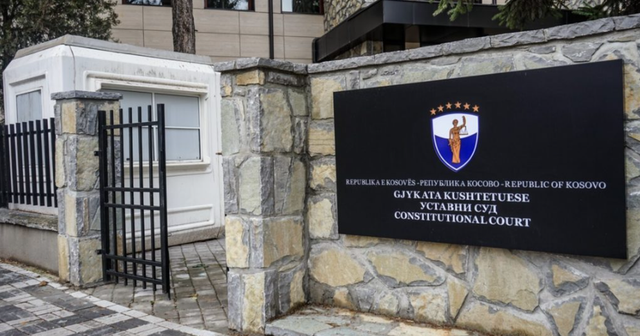
Eyes and ears are turned to the Constitutional Court for a solution to the political crisis in Kosovo. The highest legal institution in the country is seen as the light at the end of the tunnel to pave the way for the constitution of the Assembly, following the parliamentary elections on February 9.
Political parties declare that they are awaiting a decision from the Constitutional Court regarding the assessment of the constitutionality of the decision on the secret ballot of the Speaker of the Assembly.
After 24 consecutive failures to elect the Assembly bodies, civil society says that a swift ruling by the Constitutional Court on this issue could pave the way for the constitution of the Assembly and the formation of a new government.
However, the Constitutional Court says they are still reviewing the case, which was submitted by ten deputies from AAK, PDK, and LDK on May 12.
The Assembly has not been constituted even four months after the elections. The Vetevendosje Movement, as the first party in the elections, has not managed to secure the 61 votes needed to elect Albulena Haxhiu as Speaker of the Assembly.
Since May 1, the Vetëvendosje Movement has been insisting that the vote for its candidate for Speaker of the Parliament, Albulena Haxhiu, be held by secret ballot, as she has failed to be elected to this position through open voting six times.
The MP of the Vetëvendosje-Guxo-Alternativa coalition, Jeta Statovci, tells KosovaPress that a secret ballot for the speaker of parliament would only strengthen democracy.
Therefore, according to her, it is urgent that the Constitutional Court makes a decision as soon as possible.
"Some political parties have made a deal to make destructiveness and the impossibility of creating institutions a political strategy. These parties have taken these positions from the top down, which means that some people have imposed their authority within them and are putting pressure on MPs, even some members of minorities, not to follow their free will as MPs, but to submit to their destructive strategy. To get out of this situation, secret voting would strengthen the democracy of the Parliament and the freedom of the MP," she said in a written response to KosovaPress.
Statovci emphasizes that it is important that we have a clarification from the Constitutional Court about this situation as soon as possible, in order to move forward after the refusal to cooperate that has led to the blockade.
"The Assembly has 120 members of parliament and they should be accountable only to voters and the Constitution, not to the resentments of leaders and narrow interest groups," she says.
PDK MP Ferat Shala is also optimistic that the Constitutional Court can provide direction to the blockade in the Assembly, adding that as a party they will respect any decision it makes.
"We expect the Constitutional Court, in an optimal timeframe, to clarify all the issues we have raised in the request sent as political entities. We would like the Constitutional Court – and I believe it will happen – to provide a clear and complete orientation on the violations that have occurred and are occurring in the repeated sessions of the Assembly of Kosovo. Under any circumstances, we as PDK and as deputies have not contested and do not contest the decisions of the Court", emphasizes Shala.
Meanwhile, the Constitutional Court has informed KosovaPress that it is in the process of reviewing AAK's request.
"This request is being reviewed. All interested parties and the public will be notified in due time of the Court's decision. Regarding the aforementioned request, the Court, within the specified deadline, has received comments from: (i) the applicants; (ii) Abelard Tahiri, MP of the Democratic Party of Kosovo; and (iii) Saranda Bogujevci, MP of the Vetëvendosje Movement," states a written response from the Secretary General of the Constitutional Court, Veton Dula.
The Kosovo Democratic Institute (KDI) expresses skepticism about a quick decision by the Court regarding the situation in the Assembly.
Researcher Vullnet Bugaqku says that, to make a decision, the Court has 60 days from the moment the request is submitted and that, in addition to the comments, it is also expected to address the assessment of the Venice Commission.
"The Constitutional Court, at the moment it accepts the request in question, according to the Rules of Procedure, has a deadline of sixty days to issue a judgment on the case in question. Since more than two weeks have passed since the submission of the request, I do not expect the court to issue a decision within a very short period of time. Procedurally, in addition to receiving comments, the Court will also review and address the assessments of the Venice Commission. I believe that they will seek the opinion of this Commission on the issue of the secret ballot procedure during a constitutive session. The Court may consult and review the parliamentary practices of the European Union states and may also take similar decisions of other Constitutional Courts as a basis," he says.
The Kosovo Assembly has failed to be constituted 24 times in a row, while the current impasse remains over the formation of the Committee for the secret ballot of the Speaker of Parliament. /KP/
Latest news




Convinced DP candidate: Tirana district is opening, MPs' order changes
2025-06-02 21:42:53


Cara: At the head of the state is a party that was not voted for by Albanians
2025-06-02 21:16:53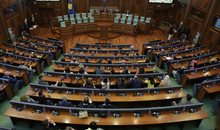
The constitution of the Kosovo Assembly fails for the 25th time
2025-06-02 21:10:46
"130 thousand unused ballots", CEC responds to the DP
2025-06-02 20:51:02
Italian professor who insulted Giorgia Meloni's daughter attempts suicide
2025-06-02 20:25:21
Fire breaks out in a building in Astir
2025-06-02 20:22:46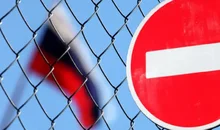
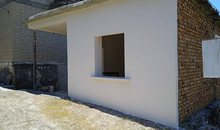



Two women threaten the Saranda prosecutor in her office
2025-06-02 19:09:20
Etna wakes up again, the most active volcano in Europe erupts
2025-06-02 19:00:36



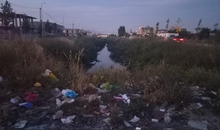



Fire reactivates in Darëzeza forest, firefighting efforts impossible
2025-06-02 17:28:29

Cultivating cannabis on a plot, 35-year-old arrested in Mirdita
2025-06-02 16:59:27

Switzerland/ Albanian caught with drugs worth over 1 million euros
2025-06-02 16:50:38
Kosovo-Serbia dialogue meetings resume in Brussels
2025-06-02 16:32:44
The VPN Era in Albania: How the TikTok Ban is "Failing", Video Views Increase
2025-06-02 16:26:36
Mahmut Orhan brings a unique experience with Curious X
2025-06-02 16:19:55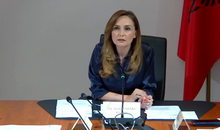

Businesses "forgot" to pay for elections, liabilities reached 4.7 billion lek
2025-06-02 15:50:27
Photo/ Caught with cocaine, Albanian arrested in Britain
2025-06-02 15:31:12


He violently opposed police officers, 39-year-old arrested in Vlora
2025-06-02 15:04:28


DP demands Rusmal's expulsion from KAS, Logu: It is biased, Begaj's advisor
2025-06-02 14:37:24
Anemia is increasing in the population
2025-06-02 14:32:18


Fires in Darëzezë reactivate, wind spreads flames
2025-06-02 13:57:33

Traffic jams and over 14 thousand fines, Traffic Police take stock of the week
2025-06-02 13:40:51
Eurosceptic Nawrocki wins presidential election in Poland
2025-06-02 13:33:27

Hysaj: Against Serbia with calm and courage, this match is for national pride
2025-06-02 13:14:41

Bulgaria defies chaos and continues on path to euro
2025-06-02 12:53:28


Elected MP, Tedi Blushi resigns from Tirana Municipal Council
2025-06-02 12:29:36

Murder in Tale, the author of the execution of Pjetër Kazaj is identified
2025-06-02 12:07:27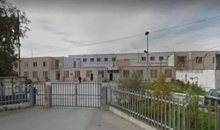


'Justice for Hamid': Activists protest against Gjadri camp
2025-06-02 11:41:26
The draw is made, judge Elsa Ulliri will judge the "Partizani" case
2025-06-02 11:26:52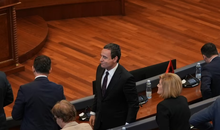
The 25th attempt to constitute the Kosovo Assembly also fails
2025-06-02 11:12:29





Coefficients, how calculations are made for newly retired people
2025-06-02 10:11:17
Two vehicles burned in Maliq, arson suspected
2025-06-02 10:00:03

Logu: They deny us transparency about the May 11th farce!
2025-06-02 09:44:46
Ten ways to feel energized if even coffee doesn't work for you
2025-06-02 09:33:49
I shpallur në kërkim për llogari të Kosovës, arrestohet i riu nga Tepelena
2025-06-02 09:24:39
African heat wave begins in Albania, meteorology warns of dry summer
2025-06-02 09:11:48
Foreign exchange, how much foreign currencies are sold and bought today
2025-06-02 09:02:45
Truck catches fire on 'Rruga e Kombit', driver escapes
2025-06-02 08:56:21
On the May 11 electoral farce in Albania
2025-06-02 08:47:54

Priest Kristaq Vaso dies after falling from church roof in Korça
2025-06-02 08:32:29

Horoscope, what do the stars have in store for you today?
2025-06-02 08:10:47
Stable weather across the country, weather forecast
2025-06-02 07:59:25
Morning Post/ In 2 lines: What mattered yesterday in Albania
2025-06-02 07:46:43
Official, Juventus appoints Damien Comolli as general director
2025-06-01 21:57:45
"Russia could attack NATO in the next 4 years," warns German defense chief
2025-06-01 21:34:42
Kuçana: Opposition candidates have been threatened by "Rama's gangs in Shkozet"
2025-06-01 21:11:15


15-year-old injured in shooting at Ali Demi's pizzeria, details from police
2025-06-01 19:51:19

Russia accuses Ukraine of 'terrorist attack' on air bases
2025-06-01 18:57:24
A hospital in Hamburg, Germany, catches fire, killing three patients
2025-06-01 18:32:28
Nesho: Rama's autocratic regime has not allowed free elections to take place
2025-06-01 18:10:23
Moroccan immigrant's suicide, activist: There are inhumane conditions in Gjadra
2025-06-01 17:49:32
World Bank Report, PL: Confirms that the majority of Albanians live in poverty
2025-06-01 17:23:56

31 dead after Israeli attack near Gaza aid center
2025-06-01 16:40:30
At least 150 dead in Nigeria floods
2025-06-01 16:14:26
Flames engulf the Darëzeza forest massif in Fier
2025-06-01 15:56:41
